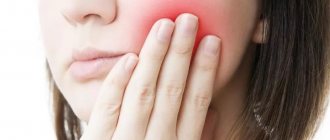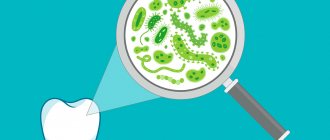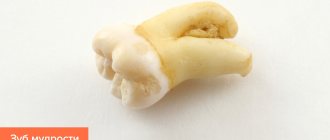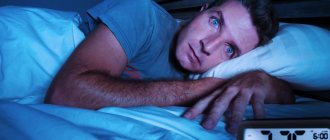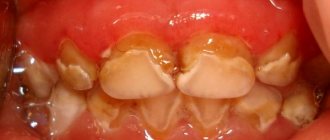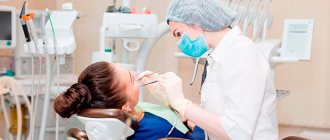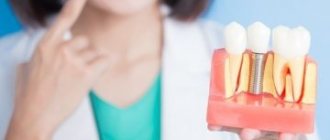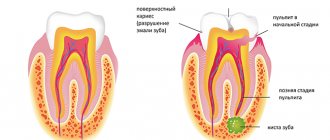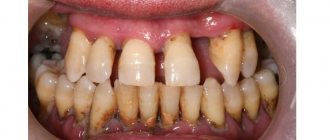Our expert - therapist of the highest qualification category, head of the admissions department of City Clinical Hospital No. 17 Anna Suvorina.
There are two types of patients: “reinsurers” and “heroes”. The first to call an ambulance for every sneeze, thereby reducing the chances of receiving urgent help for those who really need it. Well, the “heroes,” on the contrary, will endure until the last, not even suspecting that the situation is critical and the count is on in hours, or even minutes. Here are 10 situations in which delaying calling a doctor is life-threatening!
Question and answer Can osteochondrosis cause chest pain?
No. 1: Severe pressing pain behind the sternum
Details . Chest pain (angina) comes in different forms - pressing, bursting, burning, or as if you've lost your breath. It can radiate to the lower jaw or left arm, or it can ache in the pit of the stomach. Most often, the symptom appears after physical or emotional stress, but it can also occur for no apparent reason.
Suspicion . Myocardial infarction. However, up to 40% of them develop suddenly, without previous chest pain, against a background of complete well-being. But if angina does occur, even just once, it must be dealt with, because this symptom may indicate instability of an atherosclerotic plaque in one of the coronary vessels.
What to do . If you have severe pain in your chest, and even if it goes away later, you need to see a cardiologist as soon as possible. Well, if the pain does not go away within 15 minutes, you need to call an ambulance.
How to get rid of acute toothache at home?
Anyone who is faced with this problem strives to get an answer to the question as soon as possible, what to do with acute toothache in order to alleviate their condition? In almost all cases, this can be done at home, but Startsmile warns that any of the methods given below will only eliminate the symptoms and only provide temporary relief. You definitely need to see a doctor!
Pills
This is the simplest answer to the question of how to relieve acute toothache. A tablet can provide relief for several hours, which is enough to get to the dental clinic calmly and without suffering.
Since the main cause of discomfort is various inflammatory processes, the most effective recommendation on how to quickly relieve acute toothache would be to take a medicine from the group of non-steroidal anti-inflammatory drugs (they are abbreviated as NSAIDs). These drugs relieve pain well and have an antipyretic effect. NSAIDs based on:
- paracetamol;
- ibuprofen;
- nimesulide (Nimesil, Nise);
- ketorolac (Ketanov, Ketorol, Ketocam).
Combination drugs containing several active ingredients at once can also relieve acute toothache: Ibuklin, Pentalgin, Citramon, Mig and others.
Local remedies
Another way to relieve acute toothache is to apply analgesics topically, directly into the mouth. We are talking about pain-relieving dental gels of wide use: Cholisal, Kalgel. They are effective when the cause of acute pain is inflammation of the soft tissues, for example, with periodontitis and the eruption of wisdom teeth. Gels are applied directly to the affected area, due to this they act very quickly.
Folk remedies
On the Internet you can find many folk remedies for acute toothache that can be relieved without medication, using improvised means. You should be wary of untested methods: many are not only ineffective, but also dangerous (for example, they can lead to burns of the mucous membrane).
What helps with acute toothache? Startsmile has selected harmless methods that can ease your condition if you have a toothache.
- Apply something cold (such as a piece of ice) to the affected area.
Cold constricts blood vessels, inhibits the inflammatory process and blocks nerve impulses, which leads to pain relief, but the effect does not last long, about five minutes. - Rinse the sore tooth with a soda solution.
Baking soda has a strong antibacterial and antiseptic effect, so rinsing can help temporarily relieve inflammation. To prepare the rinse, you need to dissolve one teaspoon of baking soda in a glass of water. To enhance the effect, add a few drops of iodine and a little salt to the solution. You need to rinse your mouth for at least 15 minutes. - Rinse the aching tooth with a decoction of herbs.
Decoctions of chamomile, calendula or sage are good for toothache - they have anti-inflammatory properties. Pour a tablespoon of dried herb into a glass of boiling water, leave for about an hour, then strain. Since a diseased tooth often reacts to cold and hot, the infusion should be at a comfortable temperature. You need to rinse your mouth for at least 15-20 minutes. After an hour, rinsing can be repeated.
What to do if acute toothache intensifies, and there are no pills or improvised means at hand? In extreme cases, you can call an ambulance: the paramedic will give an anesthetic injection, which will temporarily alleviate the condition. But in any case, you should not postpone a visit to the doctor, because after the analgesic effect wears off, the pain will return.
Don't endure the pain! Do not try to diagnose yourself and treat pain at home. Don't wait for complications and make an appointment with your dentist right away.
No. 2: Sharp pain in the center of the abdomen
Details . After a few hours, this pain increases and descends to the iliac region (lower right side). At the same time, nausea and vomiting may appear, often one-time, and body temperature may remain at 37–38 0C.
Suspicion . Acute appendicitis.
What to do . Call an ambulance urgently, as they say, without waiting for peritonitis. By the way, not only the risk of complications depends on the length of hospitalization, but also the method of performing the operation, and therefore the subsequent cosmetic effect. While the inflammation of the appendix is catarrhal, it can be removed endoscopically, that is, without any traces at all.
Monkey in the stomach. 7 myths about appendicitis debunked by a surgeon Read more
How to relieve pain
Experts believe that pain should never be tolerated. It definitely needs to be stopped, because it harms the body - it disrupts the immune system, hormonal balance, etc.2. Severe pain can even affect mental balance, so the use of painkillers for toothache is a necessary measure to maintain physical and mental health2.
Nonsteroidal anti-inflammatory drugs (NSAIDs) are widely used in dental practice6. If you're looking for tablets that can help with toothache, look no further than Motrin®. This is a universal pain reliever whose active ingredient is naproxen8. It has not only a pronounced analgesic, but also an anti-inflammatory effect7.
Naproxen-based medications help relieve toothache and last up to 12 hours10.
Be aware that uncontrolled use of NSAIDs can lead to serious gastrointestinal, cardiovascular and renal complications7. Therefore, under no circumstances should you engage in self-diagnosis or self-medication - take any medications only as prescribed by your doctor. Do not forget that at home you can only relieve the pain for a short time, and not cure the tooth, so an analgesic drug is only a temporary measure. Once the pill stops working, the pain will return.
Top
No. 3: Pain in the right hypochondrium
Details . The pain may radiate to the shoulder or back, or there may be sharp sudden pain in the abdomen, vomiting, sometimes mixed with bile, and bowel movements. The temperature remains at 37.1–38.0 0C.
Suspicion . Gallstones.
What to do . Any severe abdominal pain requires immediate consultation with a doctor, since it can be anything from harmless biliary dyskinesia, which is treated on an outpatient basis by a gastroenterologist, to acute pancreatitis, which can even be fatal. And the most pronounced sensations are caused by a perforation (breakthrough) of a stomach or duodenal ulcer into the abdominal cavity, when the risk of death is high. Therefore, if you have abdominal pain, it is better to spend a day or two under the supervision of doctors in a hospital. Especially children. What if what seemed like a trifle turns out to be an acute surgical pathology?
Question answer
What can cause nosebleeds?
Possible reasons
Let's figure out why teeth sometimes hurt a lot. The main reason is damage to the teeth themselves and the tissues surrounding them. Most often, such pain occurs with the following dental pathologies2:
| deep caries | destruction of hard tooth tissues located close to the “nerve” - the pulp |
| pulpitis | inflammation of the pulp when microorganisms and the toxins they release enter it |
| periodontitis | inflammation of the periodontium - the tissue that holds the tooth in the jaw |
| injuries | mechanical damage to hard dental tissues - bruises, dislocations and fractures4 |
Top
No. 8: Severe lower back pain (colic)
Details . The symptom is felt more strongly on the left or right. The pain may be accompanied by nausea.
Suspicions . Blockage of the urinary tract with a stone due to urolithiasis.
What to do . Patients who have previously experienced colic can take an antispasmodic tablet and go into a hot bath. In this case, the pebble may come out and the pain may go away. But if the symptom appears for the first time, you should not do this, so as not to “blur” the clinical picture and complicate the diagnosis. It's better to call an ambulance.
Nature of toothache
The most common reason why a tooth starts to hurt is caries3. At an early stage, painful sensations from sweet, sour, hot or cold foods may appear. Discomfort disappears immediately after the cessation of the stimulus2. The deeper the caries, the stronger and longer the pain is felt3.
Gradually, the carious process progresses, the tooth pulp becomes inflamed and pulpitis develops. This disease is characterized by severe, spontaneous, throbbing pain, radiating to adjacent teeth, temple, ear and even eyes, and worsening in the evenings and at night3.
Advanced pulpitis leads to the development of a more serious disease—periodontitis. A pronounced aching pain appears, which increases when biting or pressing on the tooth3. Patients often complain about the “feeling of a grown tooth”3.
Trauma is the second most common cause of damage to the integrity of tooth tissue after caries4. Symptoms depend on the degree of damage and can manifest as short-term pain when touching a tooth, or sharp pain from mechanical and temperature stimuli4.
Another reason why people go to the dentist is pain during the eruption of wisdom teeth. This process is characterized by the following symptoms: aching pain in the tooth area, pain when opening the mouth and swallowing, fever, swelling of the mucous membrane and soft tissues of the face5.
Top
No. 9: Sudden dizziness, vision problems
Details . Increasing weakness in the arm and leg (usually on one side), memory loss, and speech changes may also occur.
Suspicion . Stroke.
What to do . Ask the person to smile, raise both hands at the same time, and say a simple phrase. If the smile is crooked (one corner of the mouth is lower than the other), speech is slurred, the synchronization of movements is disturbed (one hand is higher than the other) - quickly dial “103” or go to the nearest vascular center. There are only a few hours to save a person!
How to recognize a stroke? Infographics Read more
No. 10: Increasing suffocation
Details . It is especially dangerous if suffocation is associated with an insect bite, taking a new medicine, new food, or a change in the usual climate. Blood pressure is usually very low (60/40 mmHg), the skin turns blue, sweating, panic attacks, rapid heartbeat, dizziness, nausea, and rapid pulse appear. Convulsions are possible.
Suspicion . If choking is not caused by a foreign body, it may be a sign of anaphylactic shock, a severe reaction caused by an allergen.
What to do . If it becomes more and more difficult to breathe, swelling of the face and neck appears, you should give the person any antihistamine and immediately call an ambulance. Anaphylactic shock develops very quickly. The help of a resuscitator is needed immediately.
What should you not do if you have a toothache?
If acute toothache occurs, it is strictly prohibited:
- apply painkillers in tablet form to the affected tooth (most often the result of the described actions is a chemical burn of the epithelial tissues in the affected area);
- take antibacterial agents;
- apply warm compresses and lotions to the tooth or cheek on the affected side;
- try to relieve pain with alcoholic drinks.
In addition, dentists do not recommend resorting to the use of dubious, untested, scientifically substantiated methods and means of alternative medicine.
It is important to understand that the only sure way to deal with acute toothache is to timely seek help from a dental clinic. Modern medications and treatment methods allow dentists to relieve patients of pain in a matter of minutes, and then effectively and quickly cope with the pathological processes that provoke the appearance of pain.

